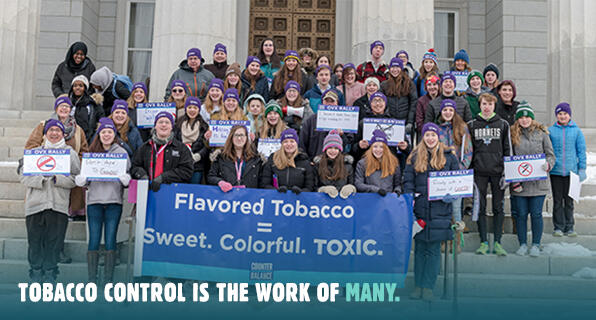
Tobacco Control is the Work of Many
We are one of many statewide partners, including concerned citizens, legislators, health advocates, community and social service organizations, tobacco coalitions, hospitals and local businesses, working to reduce the burden of tobacco and nicotine on Vermonters. As an extension of our department, 12 local health offices are located around the state and support individuals and communities at the local level.
